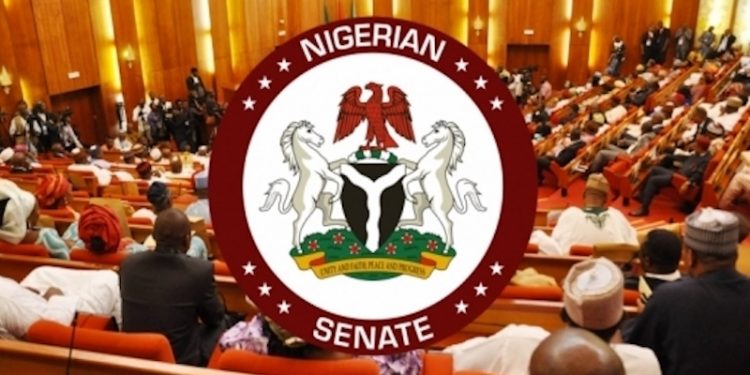The Nigerian Senate has approved President Tinubu’s $21.5 billion foreign loan and ₦758 billion bond plan to fund infrastructure and settle pension arrears, aiming to stimulate growth and ease retiree suffering.
In a major move to address Nigeria’s infrastructure deficit and long-standing pension liabilities, the Senate on Tuesday approved President Bola Tinubu’s comprehensive borrowing plan for the 2025–2026 fiscal period.
The plan includes a combination of foreign loans and grants, $21.5 billion, €2.2 billion, 15 billion Japanese Yen, and a €65 million grant, as well as a ₦757.98 billion domestic bond issuance to clear outstanding liabilities under the Contributory Pension Scheme (CPS), some of which date back to December 2023.
According to the Red Chamber, the approved measures form a crucial part of the Medium-Term Expenditure Framework (MTEF) and Fiscal Strategy Paper (FSP) for 2025–2026. These frameworks guide Nigeria’s economic direction and fiscal policy over the next two years.
Presenting the report, Senator Aliyu Wamakko, Chairman of the Senate Committee on Local and Foreign Debts, emphasized that the external loans were largely concessional, with low interest rates and long repayment terms, making them sustainable for the country.
President Tinubu, in his letter to the National Assembly, argued that the loans were vital to support sectors such as transportation, power, health, education, agriculture, and water resources.
“In light of the significant infrastructure deficit and dwindling revenues, especially after the removal of fuel subsidies, it has become essential to pursue prudent economic borrowing,” Tinubu noted.
One innovative feature of the approved package is the creation of a $2 billion Foreign Currency Denominated Issuance Programme, designed to raise foreign exchange domestically.
Enabled by Executive Order No. 16 of 2023, this mechanism allows the government to attract foreign currency investments from local sources, such as Nigerian businesses, diaspora remittances, and international firms, without relying solely on external creditors.
The Senate noted that the funds would be “ring-fenced” and deployed toward digital infrastructure, transport, and energy projects, thus reducing pressure on Nigeria’s foreign reserves and deepening the domestic capital market.
“It provides an alternative to foreign borrowing while offering returns to investors and supporting national development,” the Senate committee said.
₦758 Billion Bond to Clear Pension Arrears
Equally significant is the Senate’s approval of a ₦758 billion bond issuance aimed at clearing backlogs under the Contributory Pension Scheme. The arrears, affecting thousands of federal retirees, had persisted due to fiscal constraints and underfunding.
Tinubu confirmed that the Federal Executive Council (FEC) had previously approved the initiative in February 2025, in line with the Pension Reform Act of 2014.
“The bond issuance will cushion the hardship of retirees, restore trust in the pension system, and stimulate liquidity in the domestic market,” the Senate committee stated.
The president stressed that the move would ensure that retirees can meet essential needs, including access to healthcare and housing, and reduce the risk of premature deaths due to delayed entitlements.
Despite rising concerns about Nigeria’s public debt profile, supporters of the plan argue that the approved borrowing and bond initiatives are strategic and forward-looking.
They say the combined measures will:
- Improve critical infrastructure
- Create employment opportunities
- Boost education and health access
- Strengthen food and water security
- Enhance public service delivery
The Senate insists that the measures are necessary to stabilize the economy, meet urgent social obligations, and fulfill the administration’s promise of inclusive national development.
“This is not just about borrowing. It’s about targeted investment in people, infrastructure, and economic resilience,” the Senate noted in its final approval remarks.










